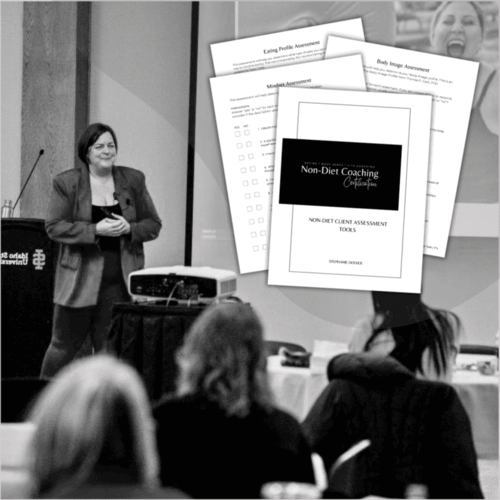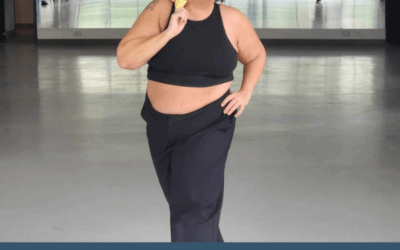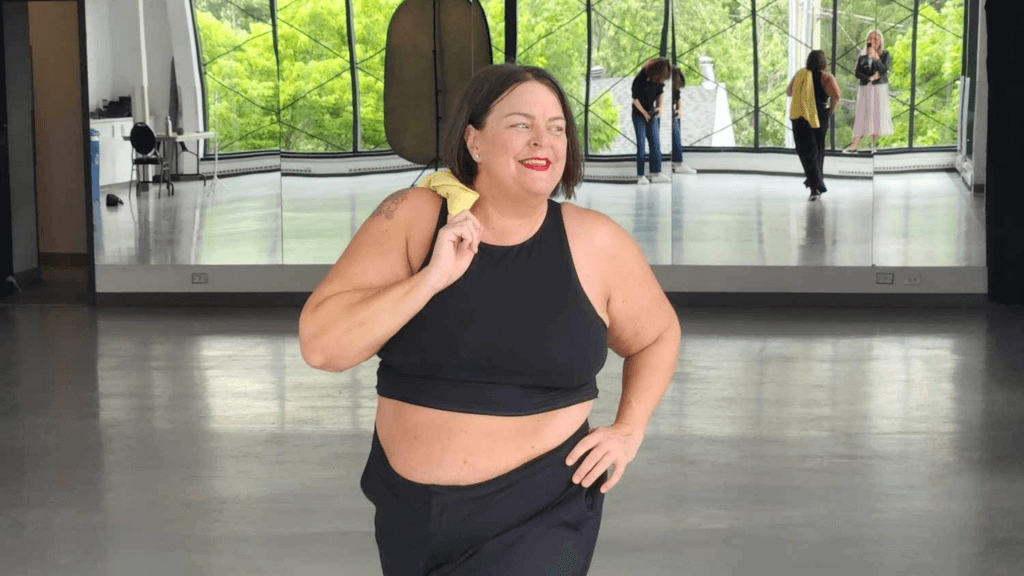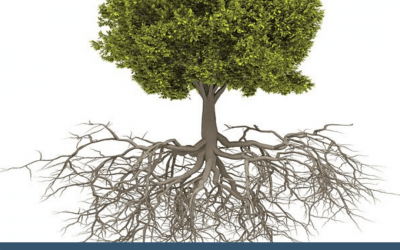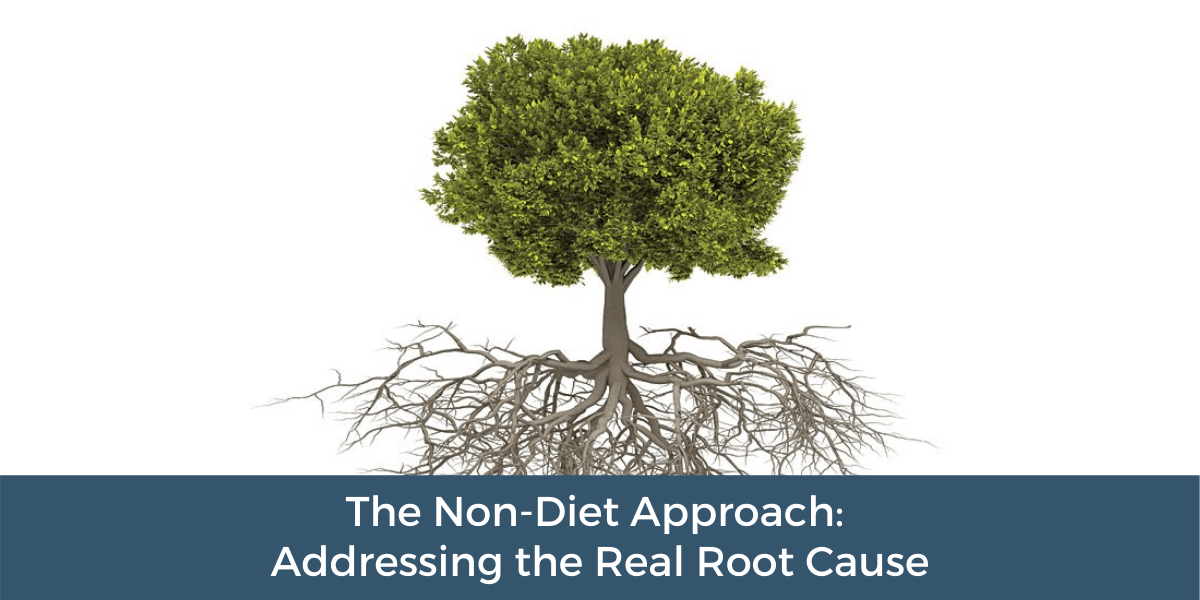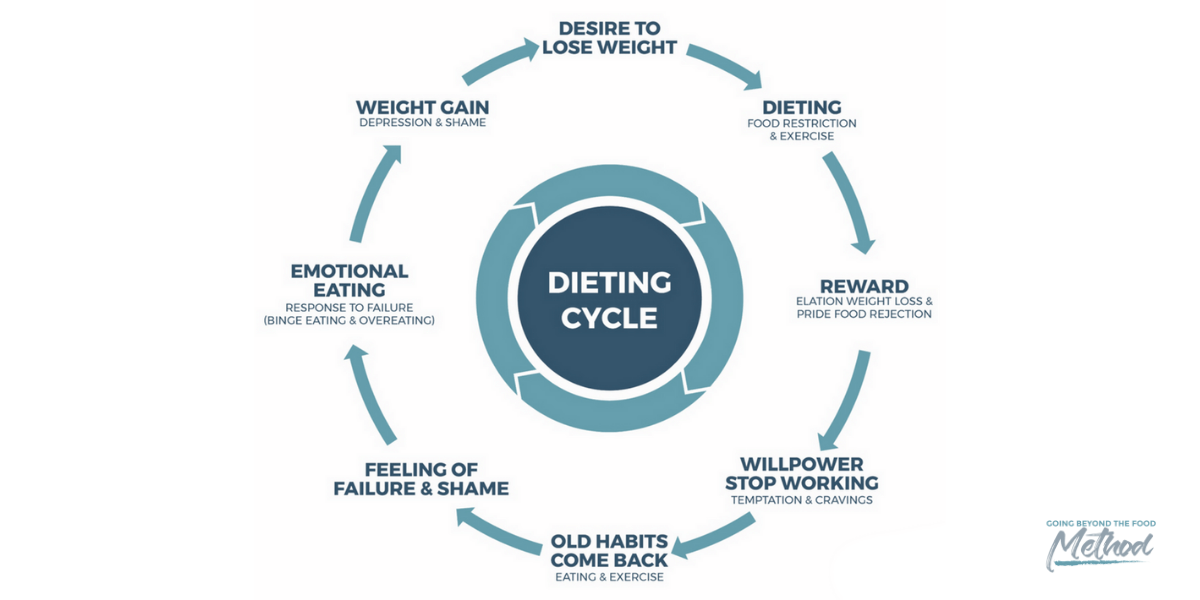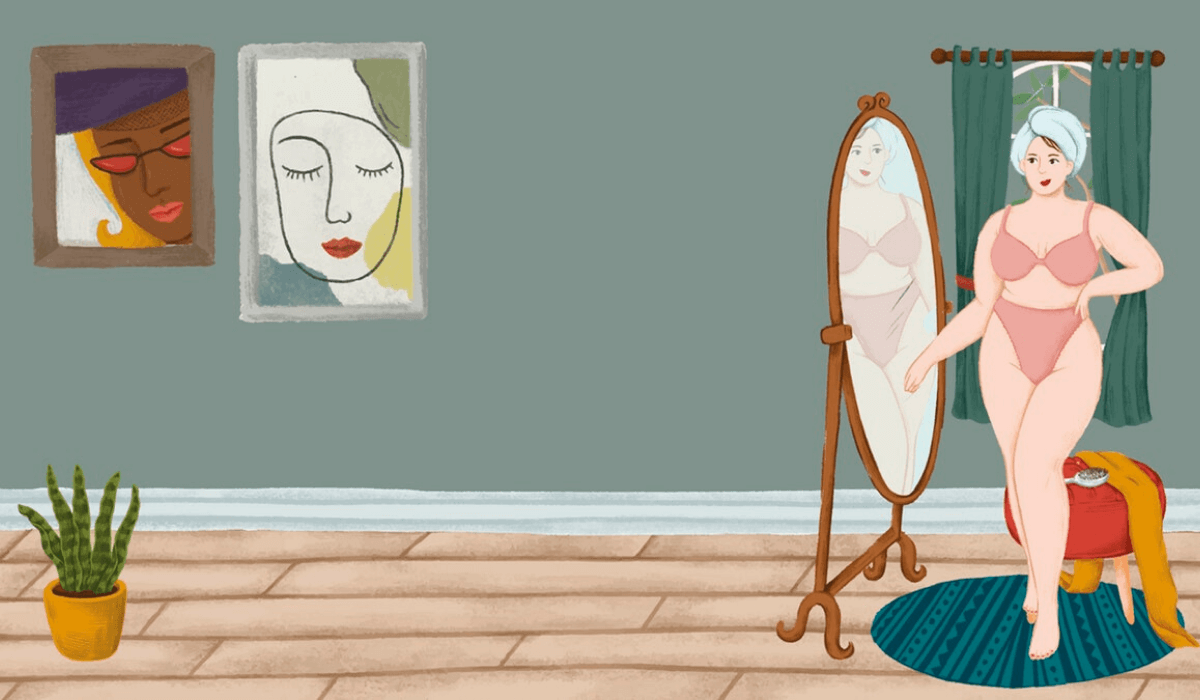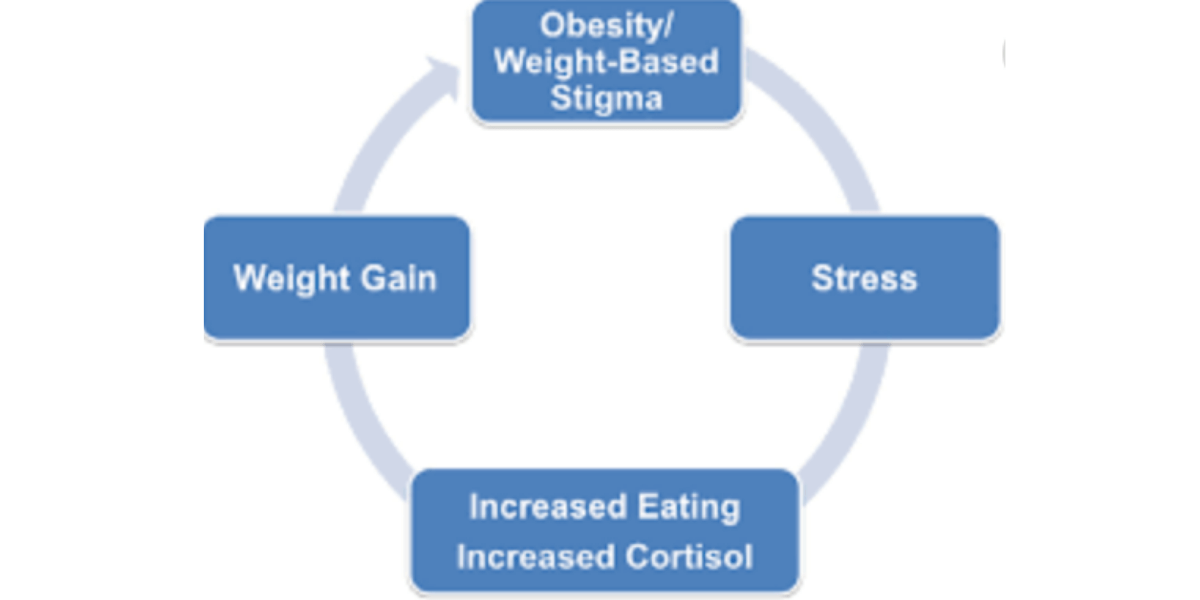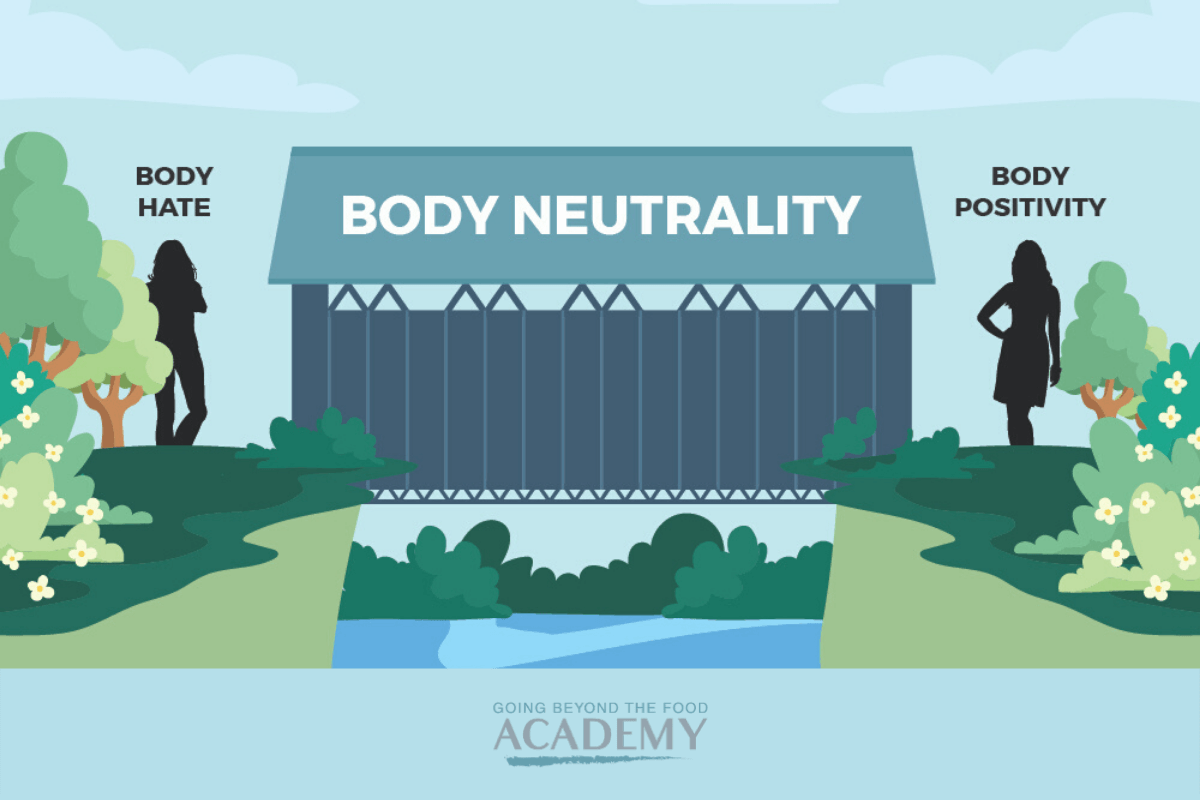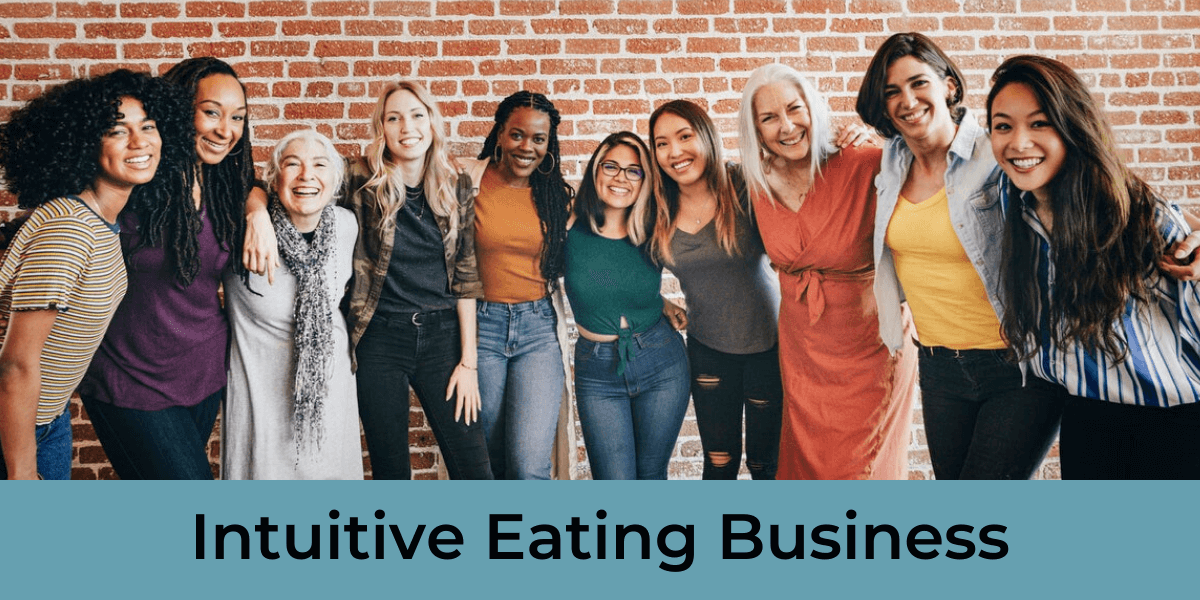Diet mindset professional support to unlearn the diet culture thoughts training was not available when I started my transition to a non-diet approach to nutrition and health as a clinical nutritionist; had to figure it out on my own. Piece it all together…
In this podcast episode First Do No Harm: The Intuitive Eating Mentorship Journey I argued that the current model of practice for a nutrition professional top-down approach is causing more harm to a particular segment of our clients: women on the diet roller coster.
The solution: The bottom-up approach. Start first with addressing the diet mindset so we can move to coach nutrition and health later in the journey. Enter diet mindset professional training!
In this article, we will cover:
Diet Mindset Professional Training
Self-Coaching for Intuitive eating
If you would like to listen to the article in audio format the Going Beyond The Food Show – Pro Series Season 1 Episode 3
Links mentioned in the episode…
Non-Diet Coaching Certification
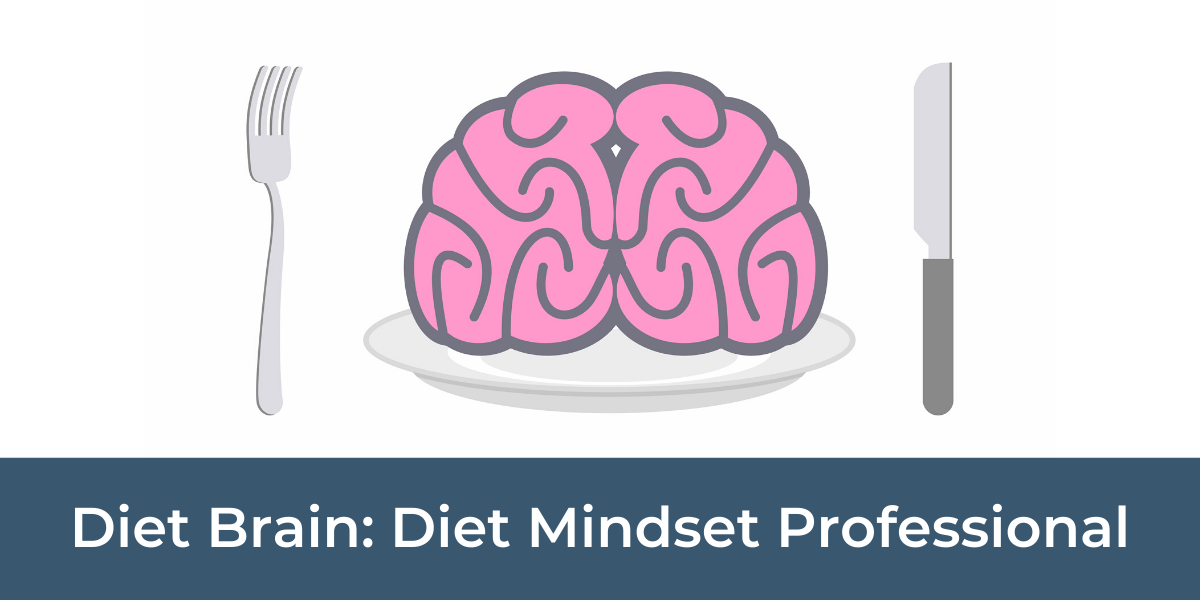
Diet Mindset Professional Training
In my professional studies as a clinical nutritionist, we barely touched upon the psychology of eating or diet mindset professional training. We jumped right into the WHAT to eat emphasizing greatly why it was so important to our health with a lot of facts and data.
So, I went into private practice and model what I had learned. Spending hours creating a complex protocol. Very quickly, I realized that wasn’t going to work… clients were overwhelmed and scared of the complexity of what they would have to do. I went to what I was taught: trying to convince them with studies, facts, and data as to why restricting this and that food was essential to their health. That didn’t work either.
Why wasn’t it working? Back then, I had no answer but today after years of independent studies I can tell you why: intellectual knowledge is not what motivates humans to change or make different choices. Especially not with food. The answer diet mindset professional training.
How human make food choices
So, if data points and fear-mongering isn’t an effective tool to help people change their eating habits, what is?
Of course, the primary driver to food choices is hunger however, what we choose to eat is not only our physiological and nutritional needs. Many other factors influence our food choice according to research:
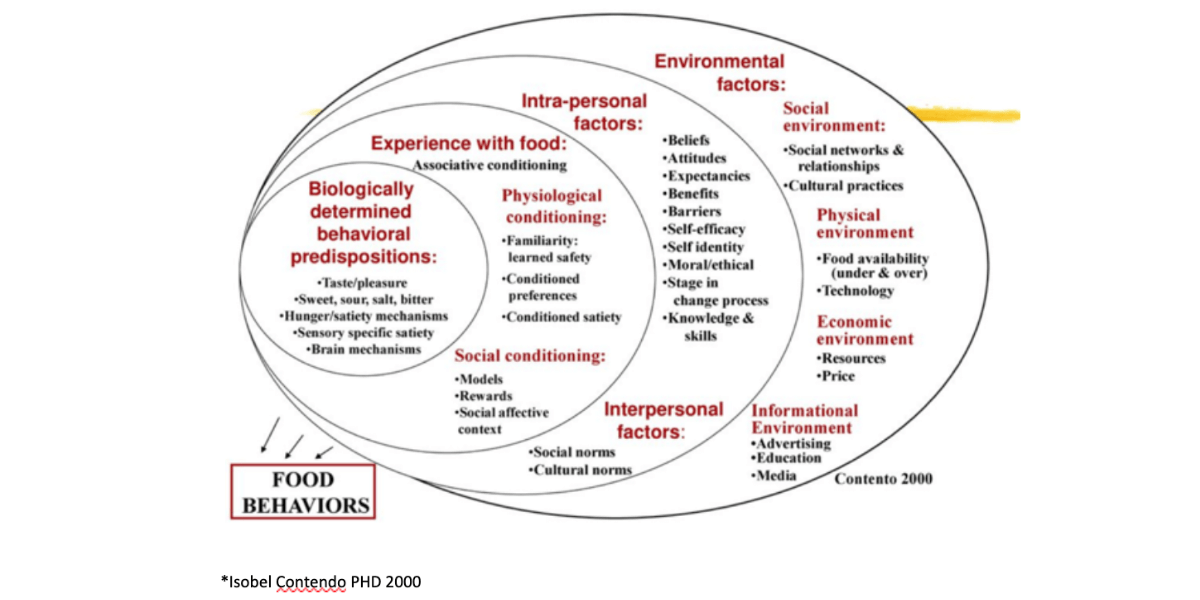
Biological Determinants
For example, our innate eating cues hunger, fullness, and satisfaction which is what is recognized as eating cues in the world of intuitive eating coaching. You can also include here Set Point theory which I discussed in depth with Chris Sandle on our Going Beyond The Food Show podcast series about weight loss.
Economic Determinants
In sum, here we can think of cost, income, availability of food which is truly out of our control as health practitioners. These are major issues with the newest version of diet culture: the Wellness Diet.
Physical Determinants
For example, access, education, skills (e.g. cooking skills), and time availability which are mostly out of our control as health practitioners.
Social Determinants
This aspect of our food choices such as culture, family, peers, and meal patterns are mostly out of reach for us as health practitioners except one that is particularly relevant to our segment of women who have been chronic dieters: weight discrimination.
There is emerging evidence that experiences with weight stigma may lead to different eating behavior. For example, individuals ate more food after exposure to a weight stigmatizing condition. Additionally, in a study, 79 percent of women reported coping with weight stigma on multiple occasions by eating more food.
A properly structured non-diet approach to health engages clients and patients in learning coping skills to help reduce the impact of weight stigma.
Psychological Determinants
This is the world of mind and emotions. Elements such as mood, stress, and guilt are one area that as non-diet health professionals should be included in our approach.
Today, it is widely recognized that food influences our mood, and that mood has a strong influence on our choice of food. For this reason, these determinants are the first 3 pillars of the Going Beyond The Food Method™️ .
Attitudes, beliefs, and knowledge about food
This is where we include intellectual knowledge about food but also include all the constructed food beliefs pass down to us from the weight loss & wellness industries in order to sell their products.
How the diet mindset develops
What’s unique about our eating behaviors, unlike many other biological functions, is too often subject to sophisticated cognitive control.
We consciously manipulate our food choices beyond the need of our bodies to achieve other external gains/ goals in our life. One of the most widely practiced forms of cognitive control over food intake is dieting (cognitive dietary restraint).
In most studies on the topic of food choices, it’s most often observed that women and men behave differently with food. In this study, women reported significantly higher restraint, more guilt after eating in various types of social situations, and more overeating in reaction to unpleasant emotional state mood.
Women’s bodies are imposed on different beauty standards than men’s bodies. Diet Culture reinforces the thin ideals to women leading 91% of women in western societies to dislike their bodies and using dieting (cognitive food restraint) to meet diet culture expectations of their body size and beauty.
With repeated failed attempts at dieting, dieting has a 91%-95% failure rate over 5 years period, women’s brain & body develops coping mechanism as a mean of surviving diet failure and weight stigma. This is why we need diet mindset professional training!
Common thought errors or cognitive distortion
When it comes to how we think, the dieter’s brain adapts using what we know as cognitive distortion or thought errors.
Let’s take a step back first to make sure we all understand how the human brain functions.
When faced with an event or a trigger, labelled in the model below as circumstances then given an interpretation. This interpretation is based on our long-held beliefs, past experiences, values system including diet culture. We then form an opinion, a thought which then ignites an emotion. The emotions we feel then creates the actions or behaviours we take. The collective action we take then creates our result.
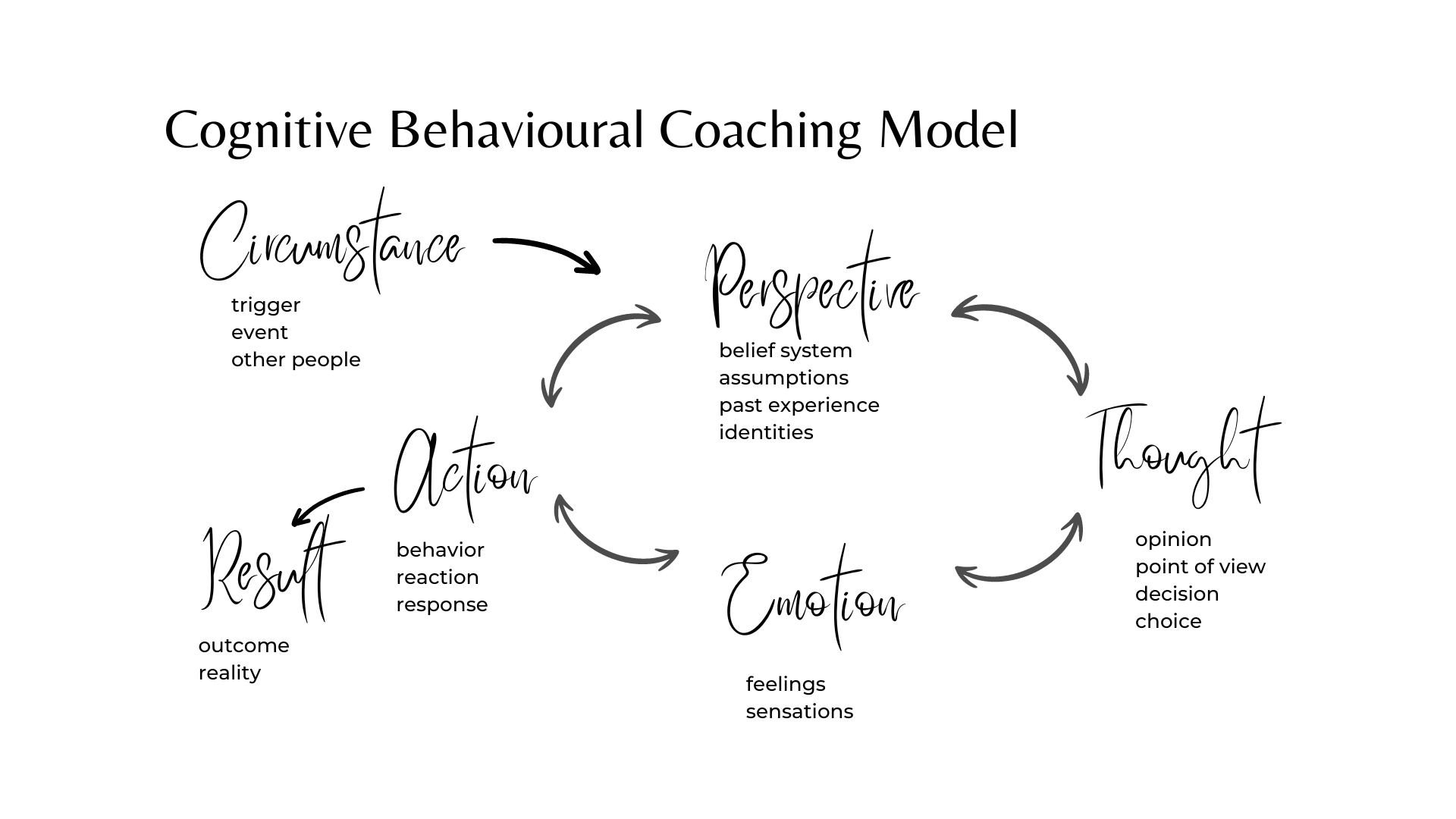
Cognitive Behavioral Coaching Model
Over time, the brain, or mind, adopts a “way of thinking” as a means to survive what we perceive as a difficult situation. These flaws in thinking are known as cognitive distortions or thought errors. This is what keeps women in the cycle of dieting and body shaming even though it has proven to be a very ineffective way of living life.
- Mental filtering
- Jumping to conclusions
- Personalization
- Black and white thinking
- Catastrophizing
- Overgeneralization
- Labelling
- Emotional reasoning
- Magnifying/ Minimizing
Over the years of working with women in a non-diet model of care approach, and my personal journey in recovering from 25 years dieting career, I have observed a pattern in cognitive distortion. I coined the term Diet Brain to better express this pattern.
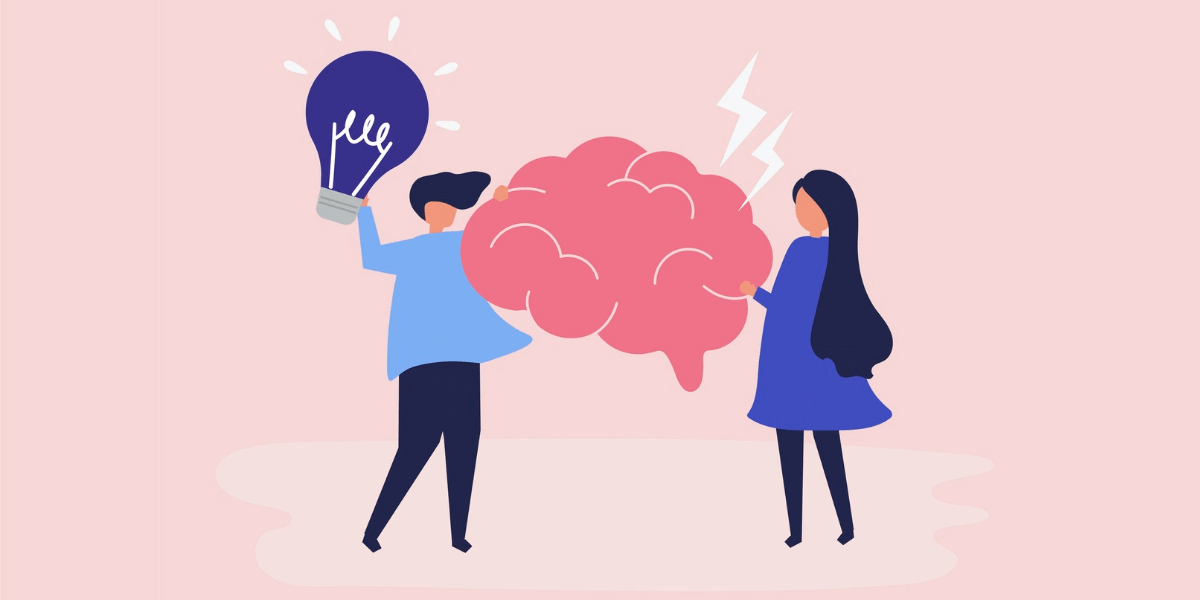
Diet Mindset & Diet Brain
Diet brain, the term I coined a few years back, is the collective of 4-main thought errors. In my clinical observation and personal experience overcoming each one, this pattern that is present in most women chronic dieters I have worked. What are these traits?
All or nothing / Black and White thinking
This can be best described as the on the diet / off the diet lifestyle. The good and bad food dichotomy as dictated by diet culture. With time, it spread these faulty thought patterns to every aspect of our life: exercise, work, career, relationship, how we raised children….
Perfectionism
Simply put: Everything must be perfect to off so we can be worthy of love, acceptance. At first with diet, food, and exercise but as failure cumulated, it becomes a way of life to prevent potential rejection due to “unperfected body”.
This cognitive distortion leads to a perfectionist fantasy. We make our current life so miserable by thinking that solving your problem (aka body size and appearance) will provide us with the happiness we are seeking that we actually never live (and enjoy) our current life.
Mental filtering: It’s my body’s fault
The body and its size take the blame for everything that’s wrong in your life. From health to a relationship, to opportunity, to emotional state… it’s all the body’s fault. Women then consistently compare themselves with others based on beauty and body size.
People-pleasing
This is when women move to external validation because internal validation is absent. As they believe that they are unacceptable, they will attempt to please and comfort everyone around them as a means of avoiding rejection and gaining acceptance.
These four most common cognitive distortions most present with women chronic dieters then strongly influence their eating patterns, ability to practice self-care, and create health-promoting habits.
The non-diet approach will first help the client and the patient with their mindset and emotions before engaging in nutrition education. In our diet mindset professional training, we teach the framework of self-coaching.
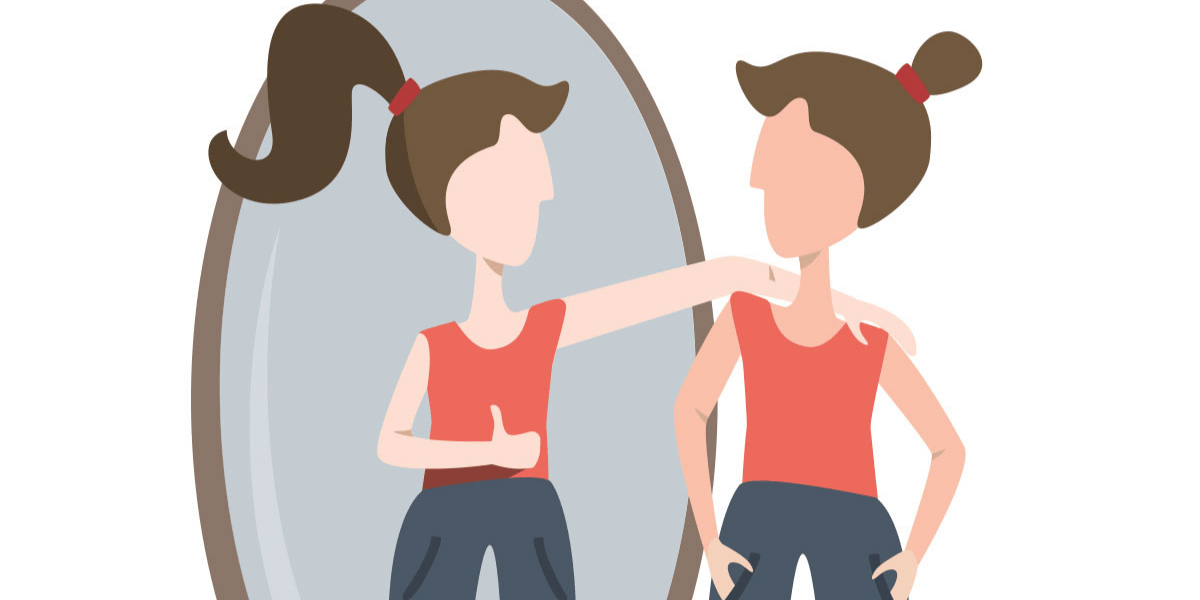
Self-Coaching for Intuitive Eating
Self-Coaching is a framework that supports first becoming aware of our thought, observing them without judgment and last to change our thinking. It’s also an effective approach supported by neuroplasticity. Neuroplasticity is the brain’s ability to reorganize itself by forming new neural connections throughout life.
We’ve developed a unique framework that supports the long-term goal of helping women recover from diet culture and become intuitive eater and body neutral. This is the best tool for diet mindset recovery for a professional approach. Self-coaching for intuitive eating is applied in 3 steps:
Step 1: Self-observation
The process of self-coaching cultivates the first skill which is about being an observer of our inner world – our thoughts and our emotions. This process helps raise the level of interception that clients will need as they begin to explore their innate eating cues with intuitive eating.
Step 2: Non-judgement
Self-coaching is about exploring your inner world with a “lense of curiosity” instead of judgment. Asking the question “I wonder why I think like this or do this” instead “I’m so stupid because I do this” is empowering and creates deep mental clarity. You can then decide how you want to think about X or what you want to do about Y.
Step 3: Conscious response
The last step of self-coaching is about choosing conscious responses or thoughts that work best for you and your specific situation, problem, or challenge. Self-coaching is ultimately about deciding consciously instead of reacting unconsciously.
Self-coaching as a thought in an intuitive eating mentorship program is about teaching our clients to connect to their innate wisdom and their power. It leads to emotional intelligence by taking charge of your mind and emotions.
That’s the feminist approach to food and health.
Get Started with Diet Mindset Unlearning Professional Training
We have created for you a number of free non-diet professional training resources to help you begin your research in the field of non-diet approach to health. You will find non-diet online training, webinars, podcasts, and articles.
You can access the non-diet coaching professional training here:
Non-Diet Professional Mentorship
Our Non-Diet Coaching Certification is a high-level business mentorship program for health professionals who want to take their business to a non-diet model of care. This program includes diet mindset professional training.
A 6-month journey of business and personal growth exclusively designed for female health entrepreneurs mastering their own journey beyond the food with intuitive eating and body neutrality, while also learning to market their intuitive eating business with a heart so they can have a massive impact on women’s health.


